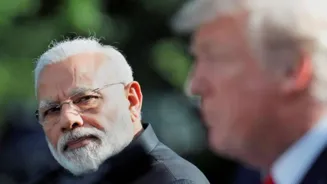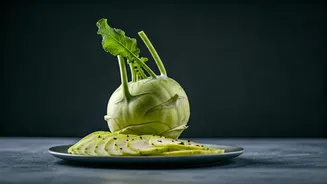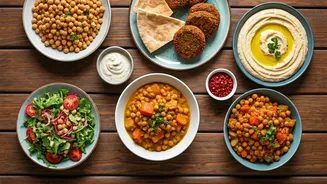India and the United States are preparing to resume in-person trade discussions in New Delhi on August 27, marking a cautious step forward after months
of friction triggered by US tariffs on Indian exports. The high-level talks come after President Donald Trump’s decision to impose steep 50% tariffs on Indian goods — including a 25% penal levy tied to New Delhi’s continued purchases of discounted Russian oil. The move had strained bilateral ties, stalling negotiations on the proposed Bilateral Trade Agreement (BTA). Who Will Lead the Talks? The US delegation, headed by Brendan Lynch, Assistant US Trade Representative for South and Central Asia, will engage with Indian officials to explore a roadmap for reviving trade negotiations. “This is not the next official round, but it will help decide the future course of action,” said Rajesh Agrawal, India’s chief negotiator and special secretary in the commerce department. The meeting will function as a precursor to the next formal round of negotiations, depending on how both sides align on trade barriers and tariffs. Trump’s Change in Tone The talks follow a shift in Trump’s rhetoric. After weeks of hardline comments, he recently expressed optimism: “I look forward to speaking with my very good friend, Prime Minister Modi, in the upcoming weeks. I feel certain there will be no difficulty in coming to a successful conclusion for both of our great countries,” Trump wrote on Truth Social. Prime Minister Narendra Modi responded that both countries’ teams are actively working to reach a settlement “at the earliest.” Why the Tensions?
- The US has long pressured India to reduce Russian oil imports, arguing that revenues help fund the Ukraine war.
- In August, India’s exports to the US slipped to $6.86 billion, down from $8.01 billion in July, as tariffs bit into trade.
- Washington’s penal tariffs were seen as a direct response to New Delhi’s reluctance to scale back energy ties with Moscow.
Commerce secretary Sunil Barthwal struck a cautiously optimistic tone, noting that discussions had continued virtually even when progress stalled. “Overall there is a positive frame of mind in both the countries with respect to trade issues,” he said.
Meanwhile, US ambassador-designate to India Sergio Gor told the Senate that Trump has invited India’s trade minister to meet US Trade Representative Jamieson Greer in Washington, signaling a possible political push to break the deadlock.
While Tuesday’s talks will not mark a formal BTA negotiation round, they are seen as critical to restoring trust and paving the way for a larger trade settlement. Both nations have reiterated that non-trade issues will remain off the table for now.
As Trump simultaneously calls for higher tariffs on China and India to pressure Russia, the outcome of the New Delhi talks could set the tone for the future of India-US trade relations in a volatile global landscape.













